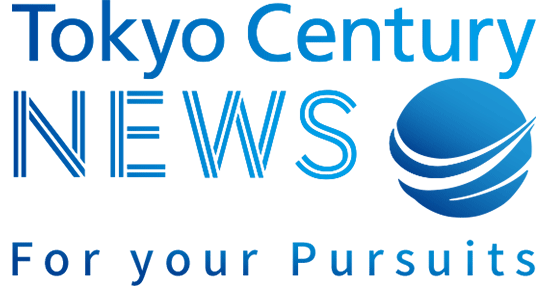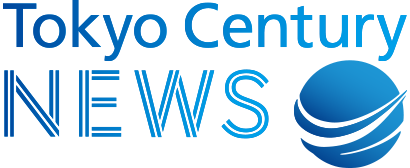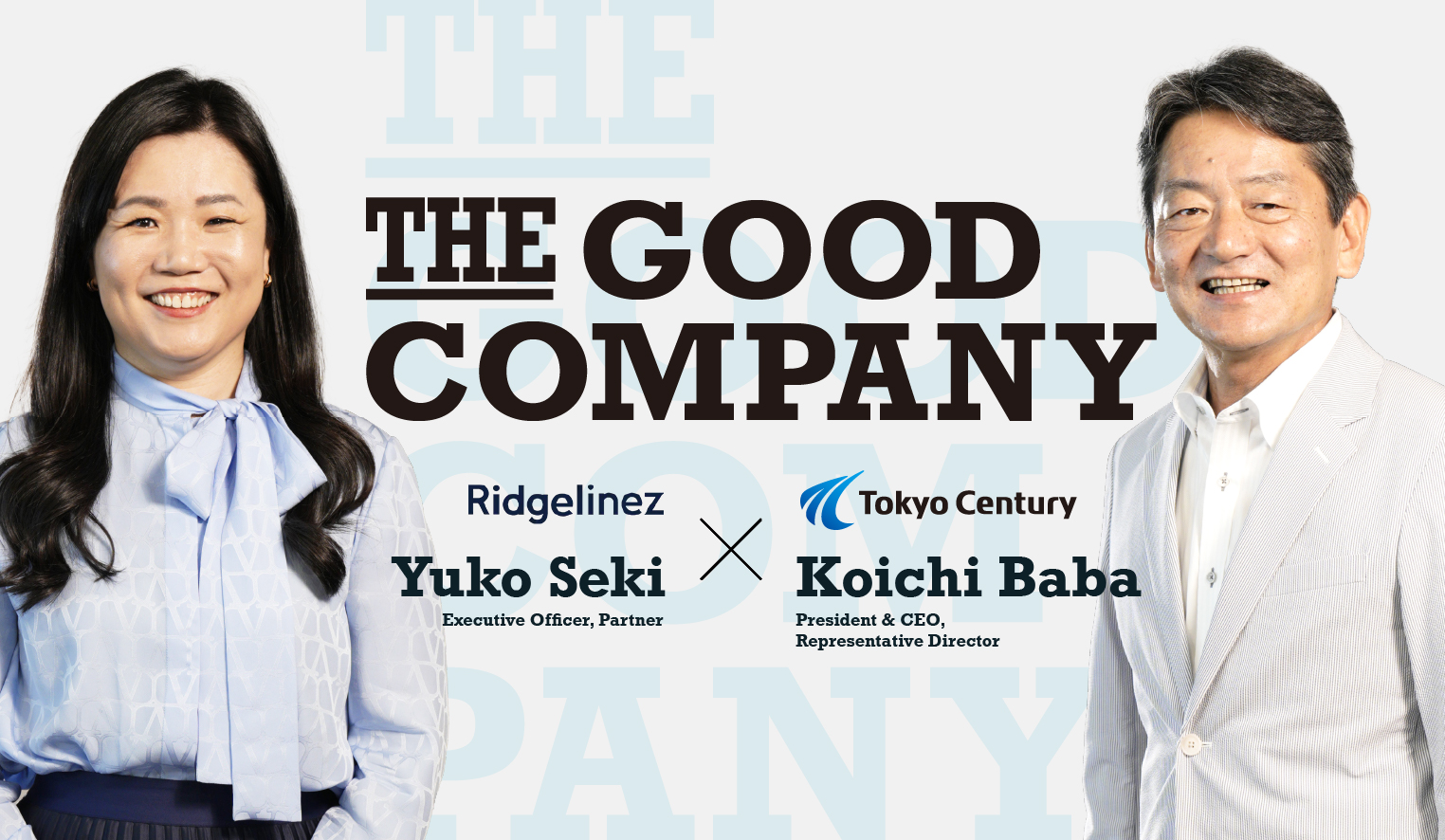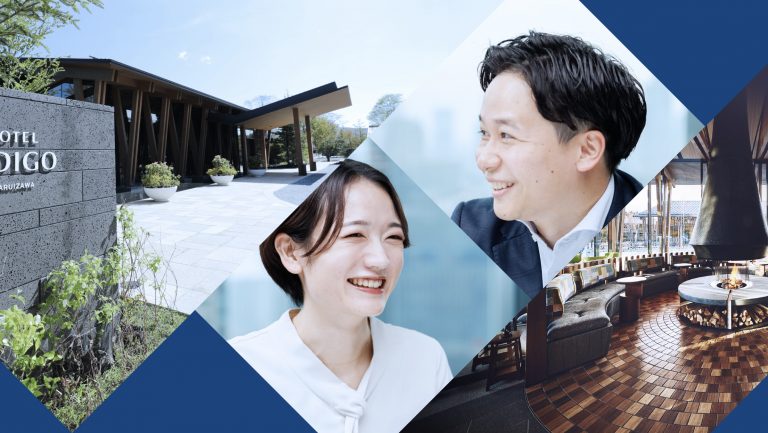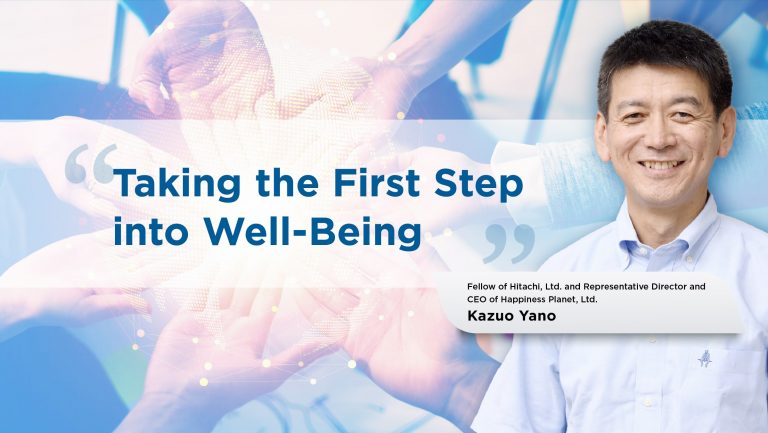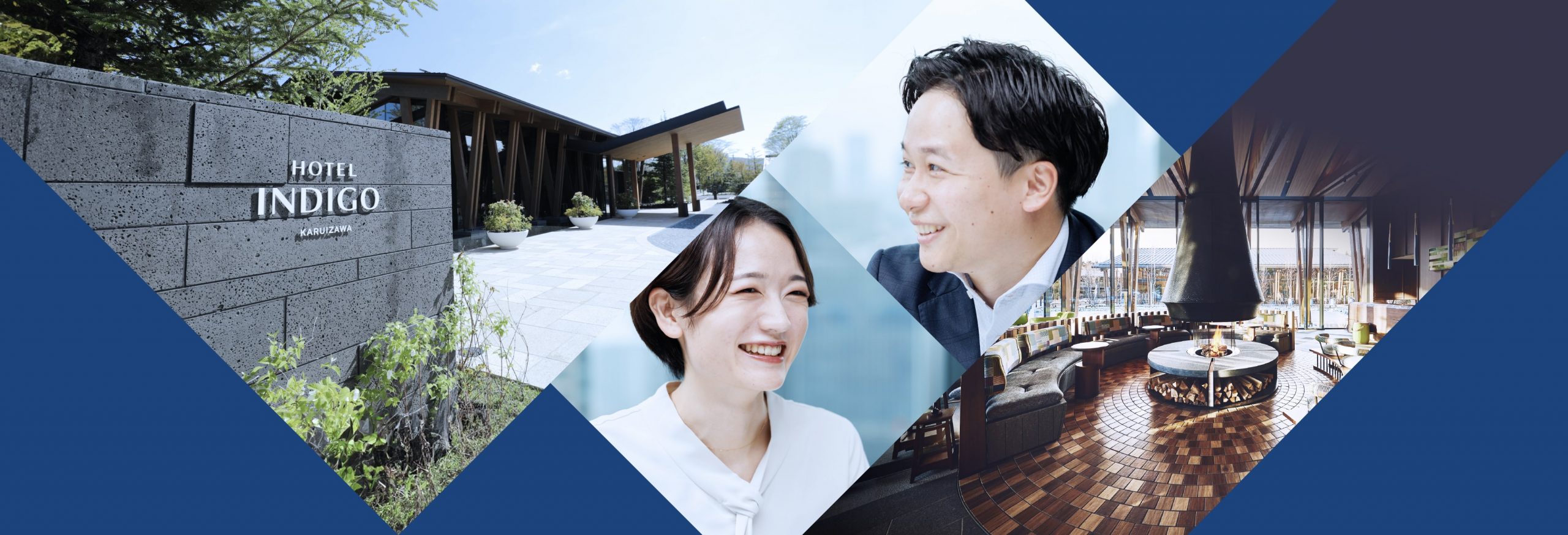
Future Leaders Explore Their Purpose and that of the Company during Training for Second- and Third-Year Employees at Hotel Indigo Karuizawa
Jan 31, 2024
Our young employees in their second and third years had to restrict their activities due to the COVID-19 pandemic between job hunting and joining the company. To create opportunities for them to get to know each other, we held a two-day and one-night training in November 2023 at Hotel Indigo Karuizawa, which Tokyo Century manages. Here is an interview with Mr. Kakizaki, a third-year employee, and Ms. Matsumoto, a second-year employee, as well as a report on the training.
Training at Hotel Indigo Karuizawa, a Sustainable, Community-based Hotel
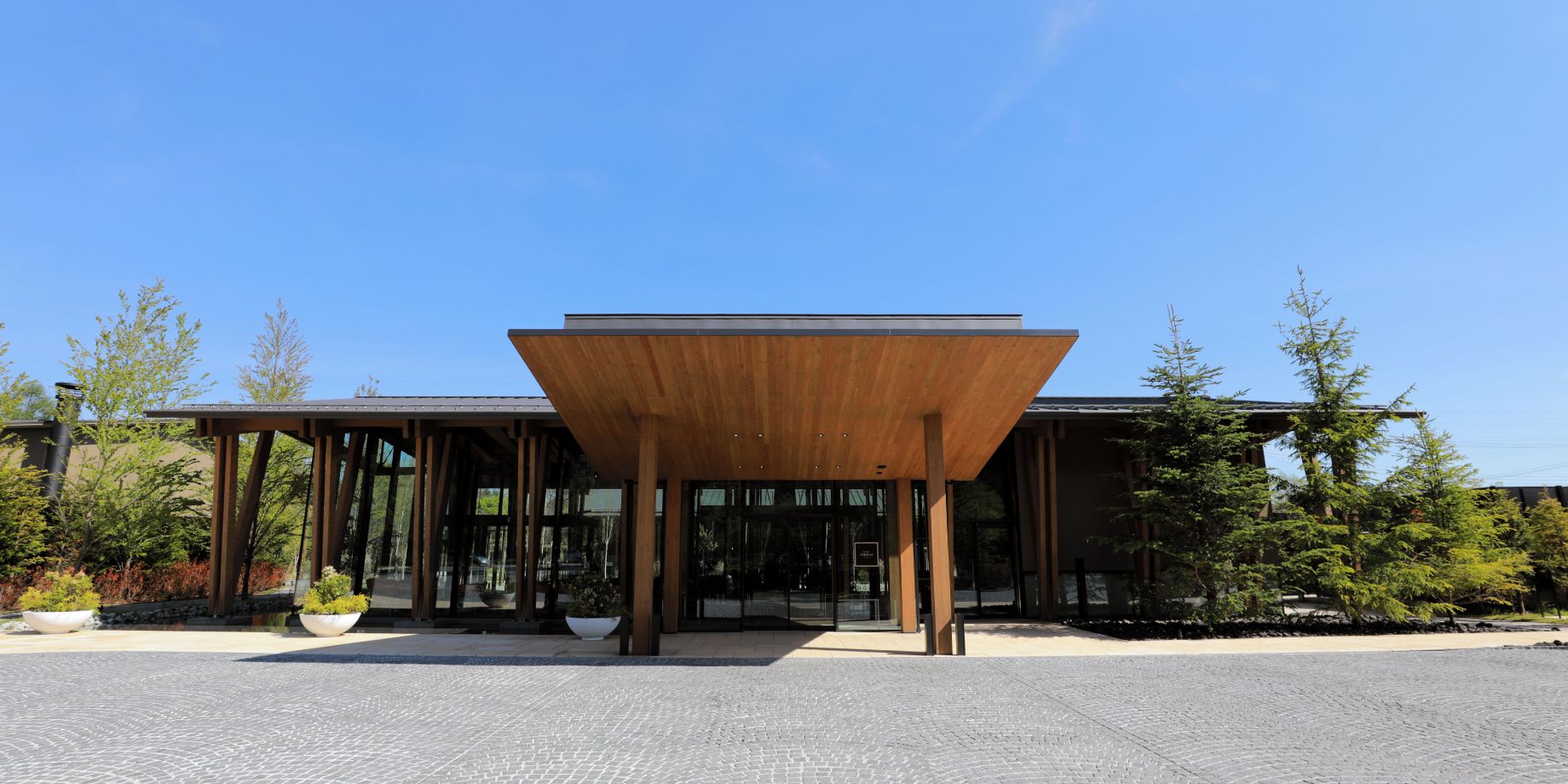
Hotel Indigo Karuizawa, the training venue, is run by Tokyo Century. It was developed in collaboration with the InterContinental Hotels Group and opened in February 2022.
The lobby that welcomes guests is an open space with a high ceiling, and the comforting sound of burning wood comes from the large fireplace installed in the center of the lobby.

Passing through the sunny courtyard forest garden, one can see the guest room and dining buildings, the latter of which houses KAGARIBI, an all-day restaurant. During the winter, a fantastic, silvery-white landscape may be viewed from the balcony.

For more information about Hotel Indigo Karuizawa, visit:
Thoughts Behind Tokyo Century’s First Hotel Management Project for Hotel Indigo Karuizawa
The Personal and Company Pursuit of a Purpose in Life
This training was held over two days and one night for all company employees in their second and third year―a total of 55 participants.
Here is a report on the day of the training.
Participants were divided into eight teams for individual work and group work. After the group work sessions, they gave presentations to President Baba.
Individual work focused on how to think about a life purpose.
Each participant could see themselves from four different perspectives. Then they came up with their own purpose in life and shared it with group members to deepen mutual understanding.
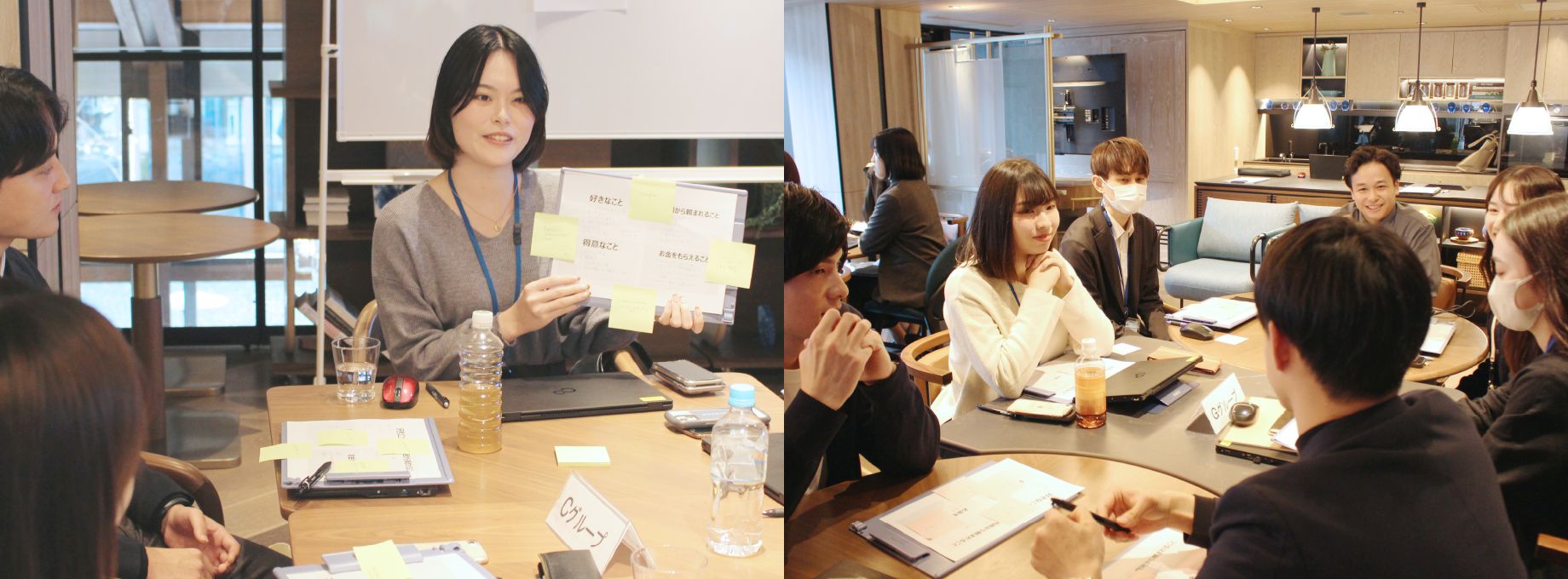
After the individual work, the participants engaged in group work to Think about the Purpose of Tokyo Century. The process of deriving an individual purpose in life was now replaced with defining the purpose of an organization, and group members worked together to come up with the purpose of Tokyo Century.
What would be the most convincing way to express a purpose for all group members? The participants, who did not normally have contact with each other, engaged in serious discussions, deliberating everything from the overall presentation to specific wording, and were able to experience the differences in business approaches and ways of thinking in each of the operating segments to which they belonged.
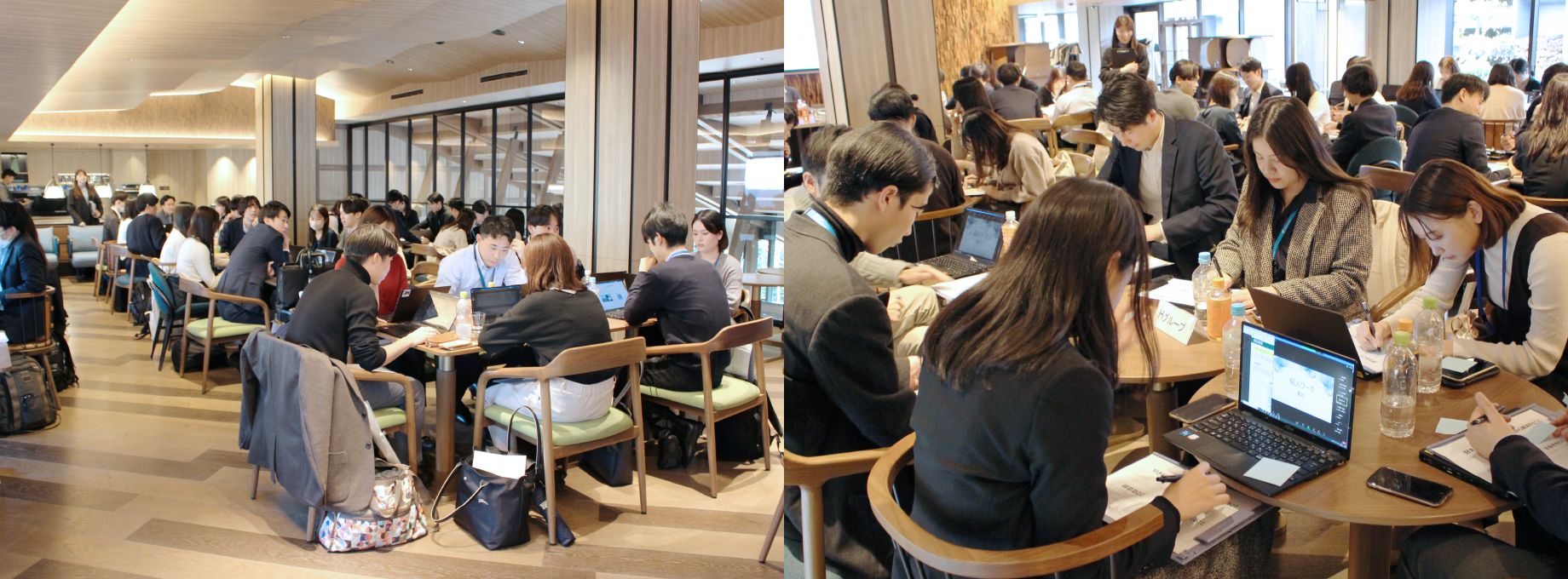
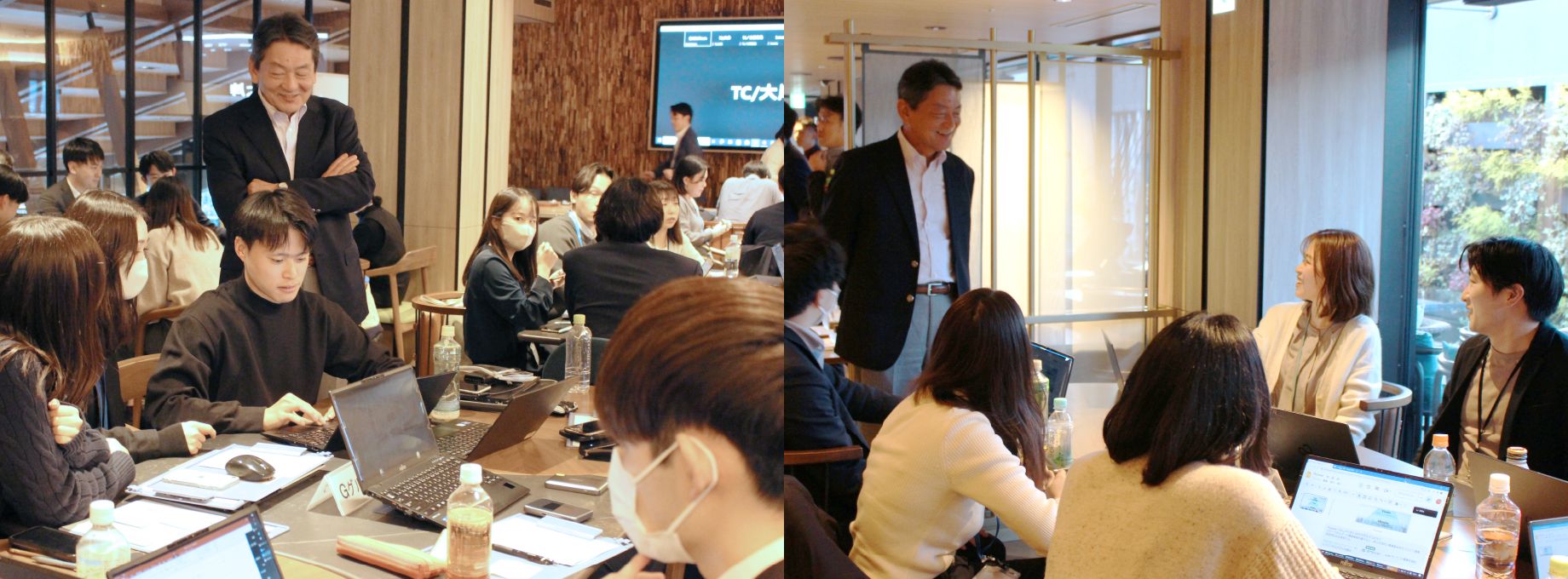
The highlight of the training was the presentation of purposes created by each group. Representatives from each then shared with President Baba the results of their work.
The purposes presented by eight groups included phrases such as “connecting based on trust,” “contributing to the development of a sustainable society,” “creating change,” “creating affluence and happiness,” “proactively creating business,” “creating a circulating society,” “circulating of businesses,” and “contributing to society through business.” These were interspersed with views of the organization as a whole in the context of the future.
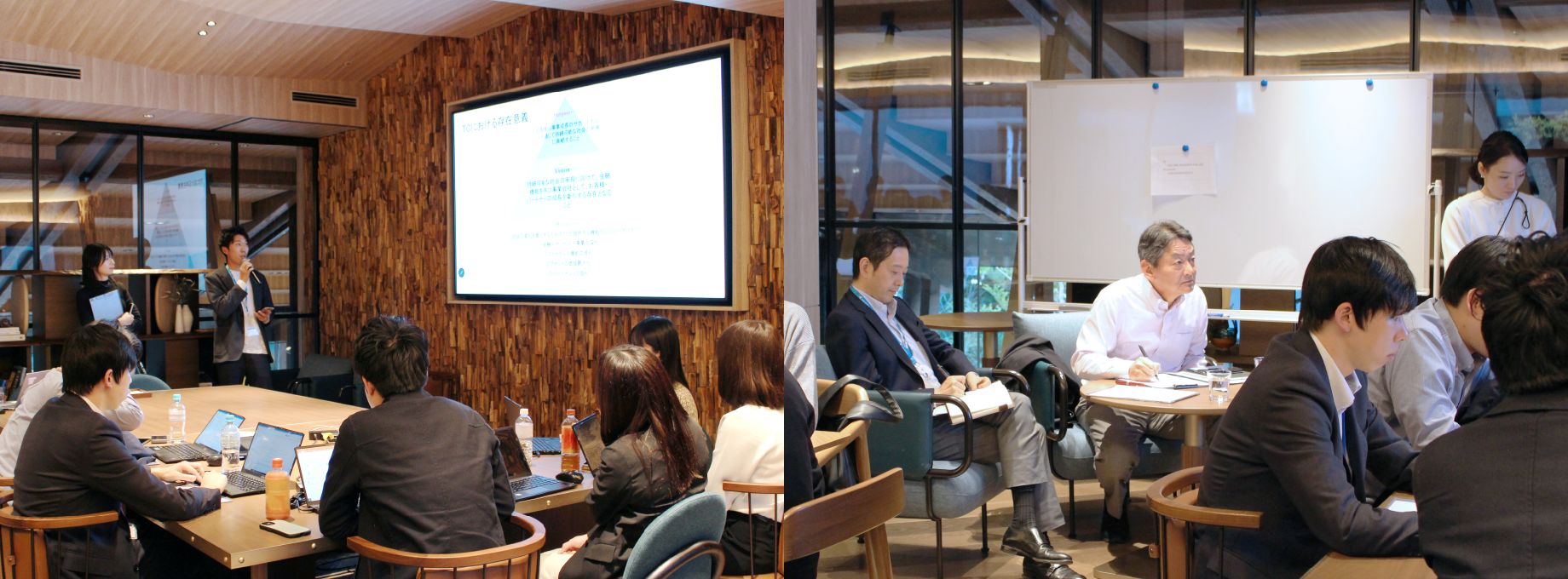
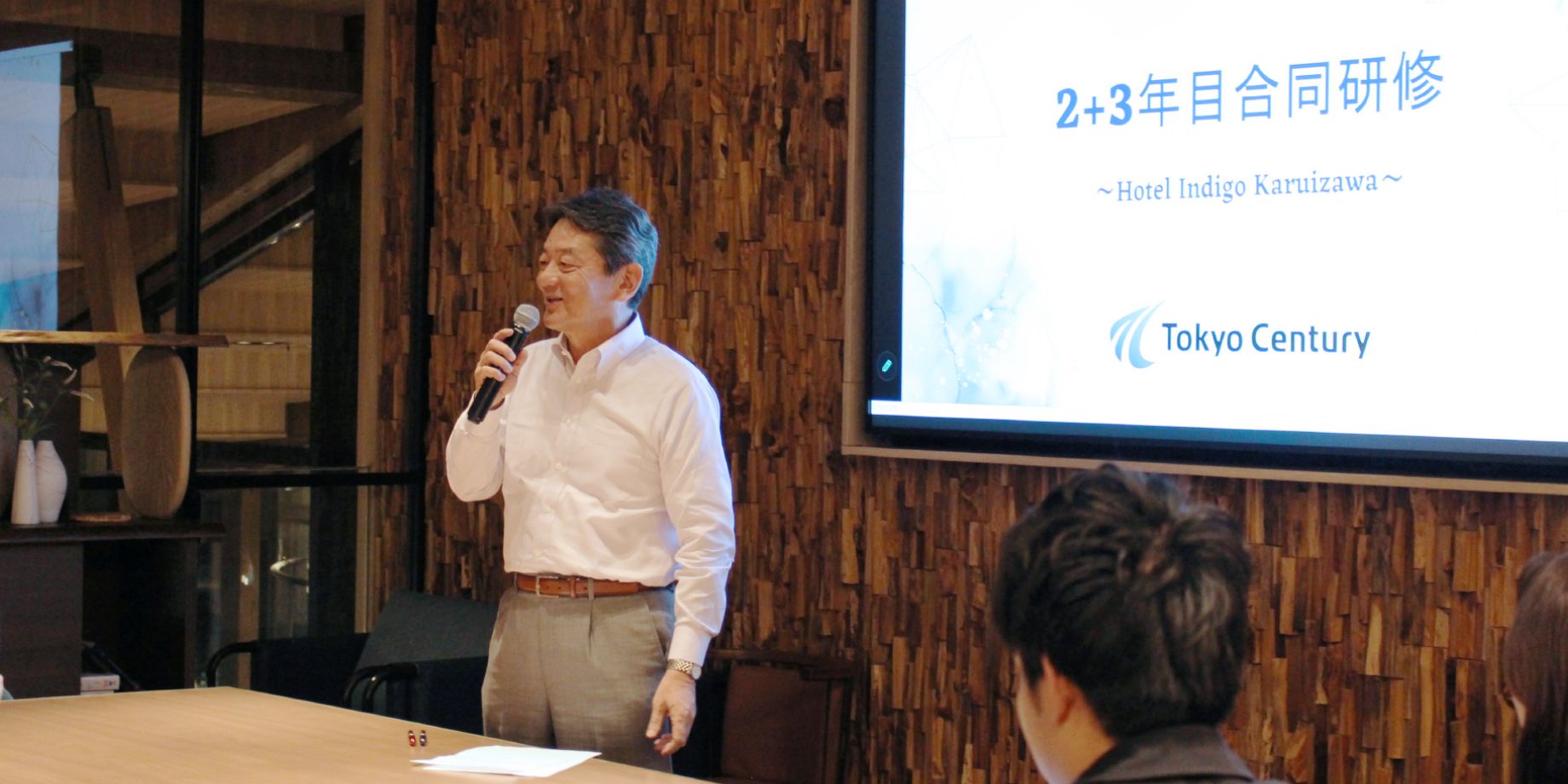
This training was held at a hotel managed by the company and brought together all members of the same generation. It offered a valuable experience in the life of a company employee and to some extent compensated for the gaps in communication caused by the COVID-19 pandemic.
We then asked Mr. Kakizaki and Ms. Matsumoto, who participated in the training, for their impressions of the training, their current jobs, and what they thought about their future careers.
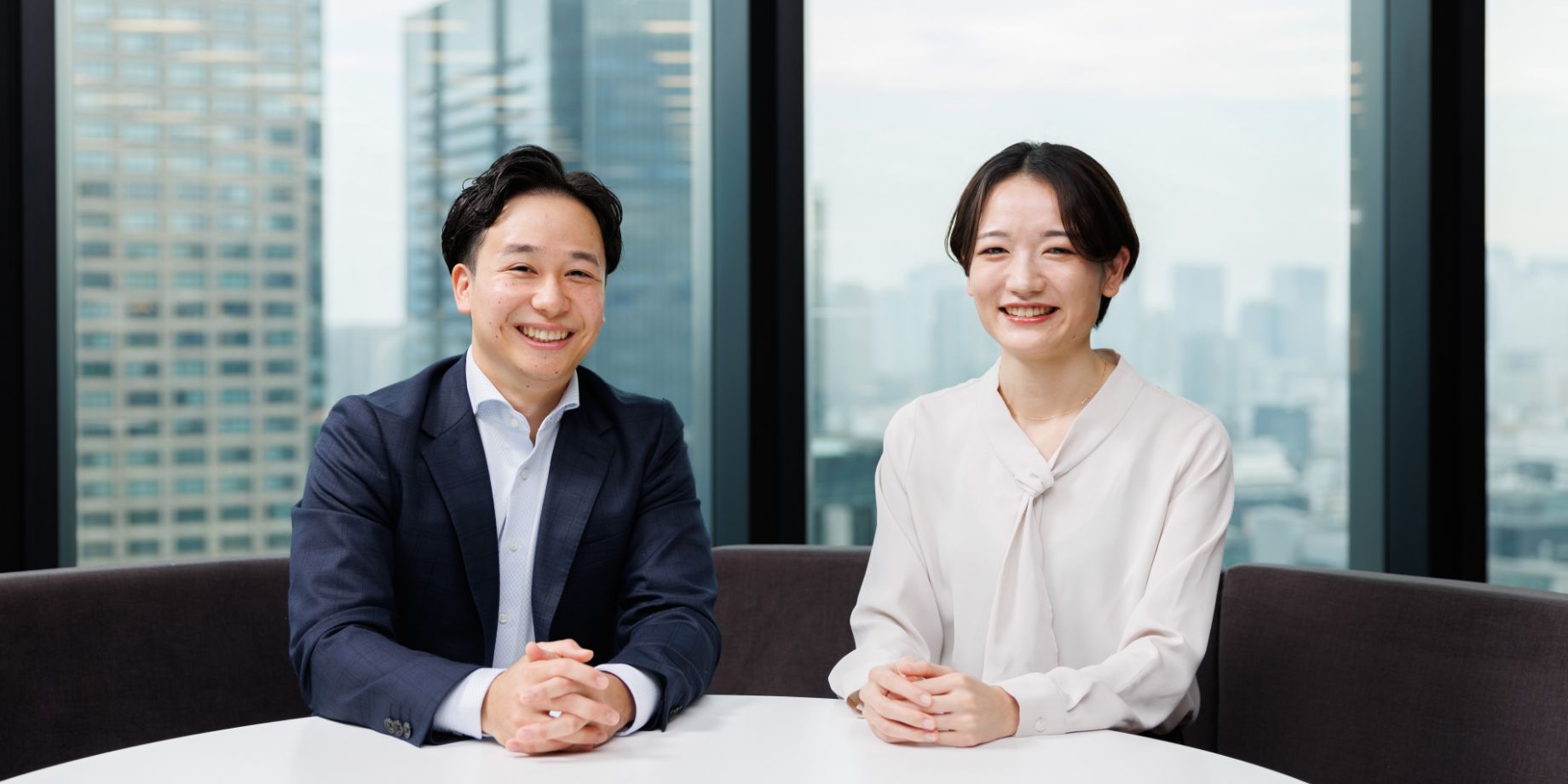
Interaction at the Karuizawa Training Program Deepens Understanding of Other Operating Segments
―What did you think about the recent training in Karuizawa?
Kakizaki: Since joining the company, I’ve been working in the Equipment Leasing operating segment and have engaged in leasing sales, mainly in the IT and mobility-related industries. Since I’ve had little involvement with other operating segments, I was hoping that this training would give me an idea of the kind of businesses other members are engaged in and what our real estate business does.
Matsumoto: During my first year with the company, I was involved with Hotel Indigo Karuizawa, which served as the training venue. So, to be honest, I was curious about what the employees would think about the hotel. In fact, everyone’s reaction upon arriving at the hotel was so positive that I once again felt happy to be working there.
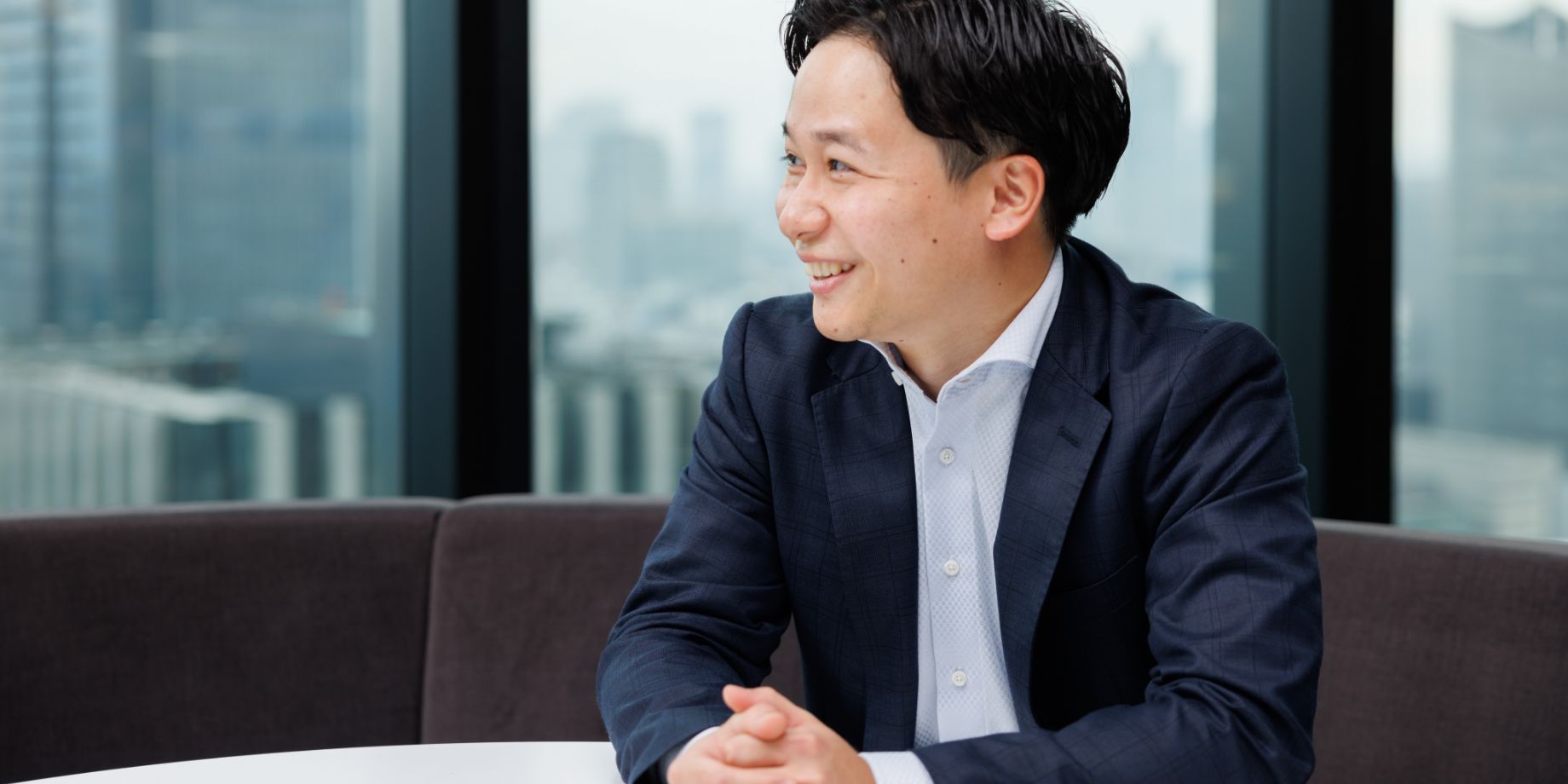
―What did you learn from the individual work?
Kakizaki: In my individual work, I investigated my personal motivation in life and what people admire about me. As a result, I reaffirmed that communicating with people makes me happy.
Matsumoto: It became clear to me that I like to provide what people ask for in its best form, and the gratitude I receive is a driving force behind my growth.
―What did you feel about the group work about purpose?
Kakizaki: My group and Ms. Matsumoto’s group approached the task differently. At the beginning of the group work, the instructor explained that the purpose in life that individuals came up with during their personal work informed the purpose of the company. So we thought about what people liked about Century Tokyo, what they were good at, and what they could do to make money. We started by thinking about what Tokyo Century likes to do, what it does well, what makes money, and what the world wants. And we found common ground and finally arrived at the idea of a business accelerator.
Matsumoto: Whether you handle assets or not largely depends on the operating segment or division to which you belong, doesn’t it? At first, I was thinking something like “creating a circular economy through assets,” but then I realized this did not apply to all operating segments; some of them make investments without owning assets, such as the Real Estate Finance Division. Ultimately, we arrived at “business” as the common keyword for all operating segments. We came to the conclusion that proposing business, as well as finance and services, to maximize value creation, could be the purpose of our organization.
―What particularly impressed you about the training?
Matsumoto: President Baba spoke after the completion of the group presentations, and one phrase from his comments has stayed with me. As I’m personally involved in businesses targeting real estate in the U.S., there are more than a few cases where I realize the impact of climate change on the economy. The fact that more environmentally sound business development will be required in the future is linked to actual practice, and that was convincing, and I braced myself up.
Kakizaki: Mr. Baba also shared an episode about the importance of positive thinking and continuing to do things. I interpreted that as meaning enthusiasm is the key to making customers happy in business. Of course, increasing profits is also important, but I’d like to seek out businesses that will please the market, customers, and partner companies, and still allow the organization and myself to continue to grow.
What Young Employees Should Do Now to Achieve Their Dreams in the Next Three Years Based on Where They Are Now and Where They Will Be in the Future
―I hope the training provided a good opportunity for you to reflect again on your personal life purpose as well as the purpose of the company. Could you explain one more time what you think about your career and the future? What were the deciding factors for both of you to choose Tokyo Century while job hunting?
Matsumoto: I was hoping to find a job mainly in the financial industry, where I was attracted to the possibility of acquiring highly specialized skills and where even young employees are entrusted with responsible work. I wanted to use English at work in the future, so one of the deciding factors was that our company is expanding its business overseas across a wide range of fields.

Kakizaki: Just like Ms. Matsumoto, I was looking for a job in the financial industry. I belonged to the rugby club from junior high school to university and was a scrum half, responsible for getting the ball out of the ruck. This experience of playing a specialized role had made me think about getting a job in the industry, where I could gain expertise. In addition, I was drawn by the opportunity to enter the workforce and start my career in Tokyo. I’m originally from Hokkaido, and I really wanted to test my abilities in an environment different from where I was born and raised.
―You’ve both been involved in specialized work from a young age, so what has made you particularly happy in your work so far?
Kakizaki: I was particularly happy when I worked with a partner company to popularize EVs in the taxi industry, and our financing proposal was adopted. I was under pressure to rapidly move forward with the project, but in my second year with the company, I received the grand prize in the TC Awards program, which recognizes achievements within the Group, and all the hard work I’d done up to that point was suddenly wiped away.
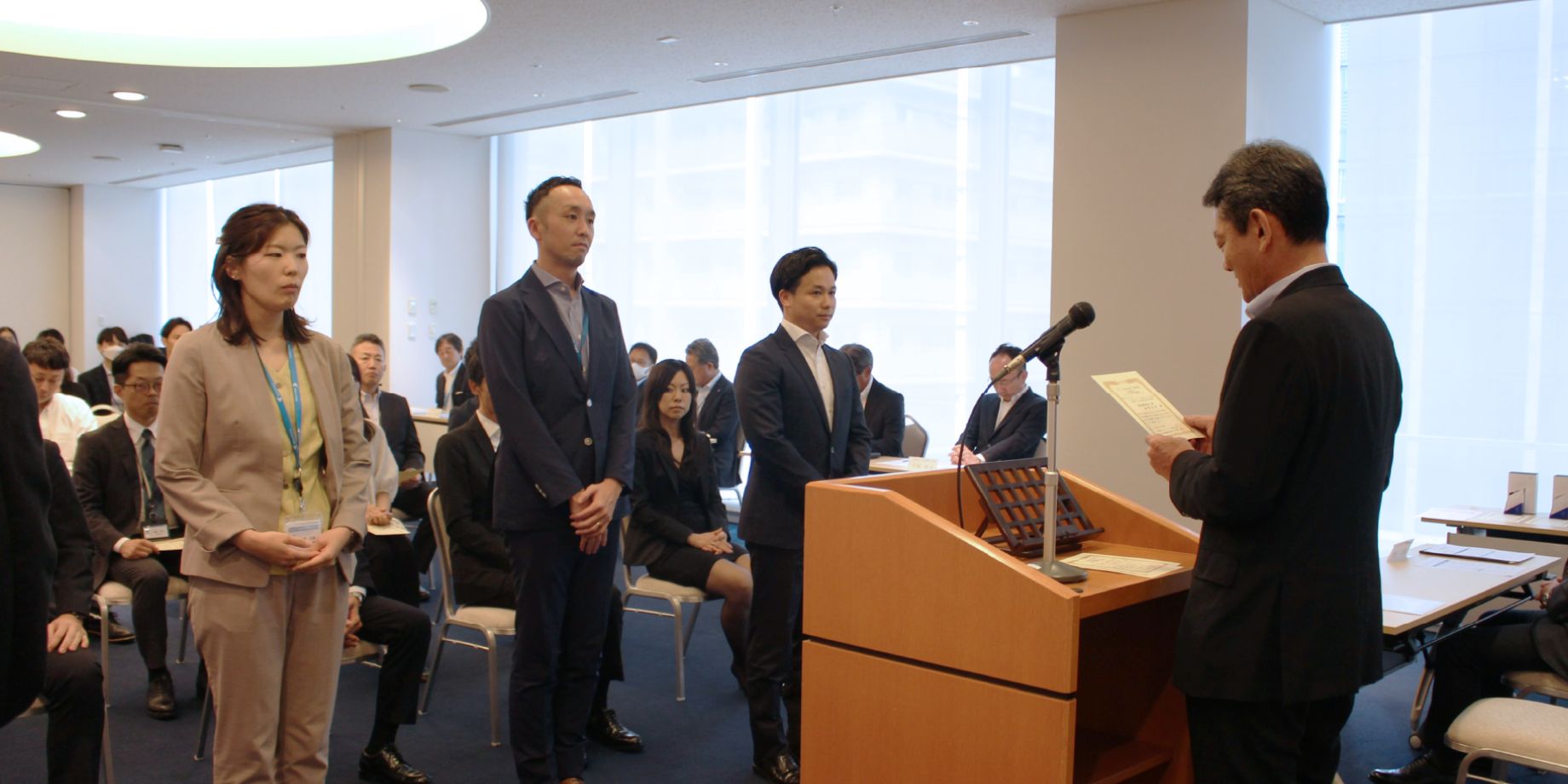
Matsumoto: In my daily work, I’m most happy when partner companies and the people I work with express their gratitude for my help and hard work. During the training, I found a handwritten card from the general manager in my hotel room, which really warmed my heart. My first year after entering the workforce was also the first year the hotel opened, so although my duties were challenging, I was so glad to be able to stay at the hotel I’d worked on and receive words of appreciation.
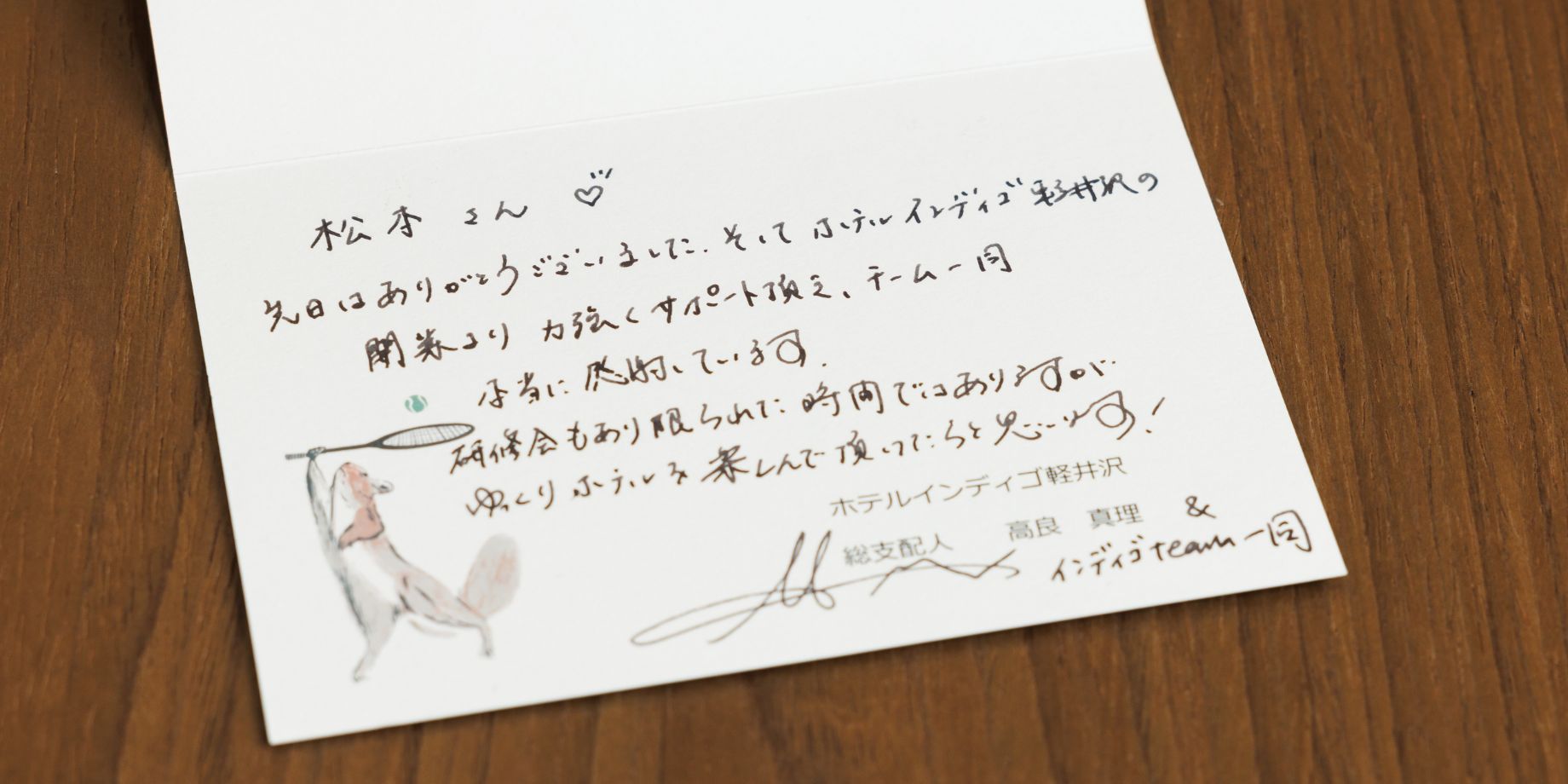
―How do you see your future in the next three years and thereafter?
Kakizaki: Although my career has been short so far, I enjoy working in the mobility field and the potential of the market day by day. Going forward, I would like to learn more advanced finance skills and face new business challenges by taking on risks with partners.
Matsumoto: When thinking about my own career, I look to a senior female employee in my team as a role model. She has been engaged in the same work as I have since last year and is currently assigned to Tokyo Century (USA) Inc. In her fifth year with the company, she has become indispensable for promoting the project, and I admire her. I’ll work hard and acquire skills so that I can catch up with her even a little, and in the next three years, I would like to be able to take the lead in promoting projects.
―Thank you very much for sharing your thoughts. Finally, could you offer a message to students who are currently looking for work?
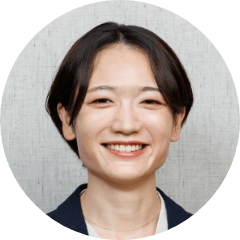
Matsumoto
Tokyo Century uses course-based hiring, whereby students choose their desired career path from our operating segments, I think creates a worry-free and very reassuring way to eliminate any mismatches upon joining the company. In fact, I have been doing the exact kind of work I had envisioned before joining the company. I believe that by carefully discerning the company direction based on the work you really want to do as an individual will surely open a path for you.
I get along well with my peers who entered the company at the same time, and they have been among my main supports since joining the company. We also get along well in our private life and regularly hold BBQs, trips, Christmas parties, and so on. Even after almost three full years since I joined the company, none of them have left yet. I believe that making bold choices for opportunities without fear of failure make it possible to job hunt without regrets.
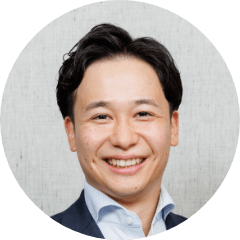
Kakizaki
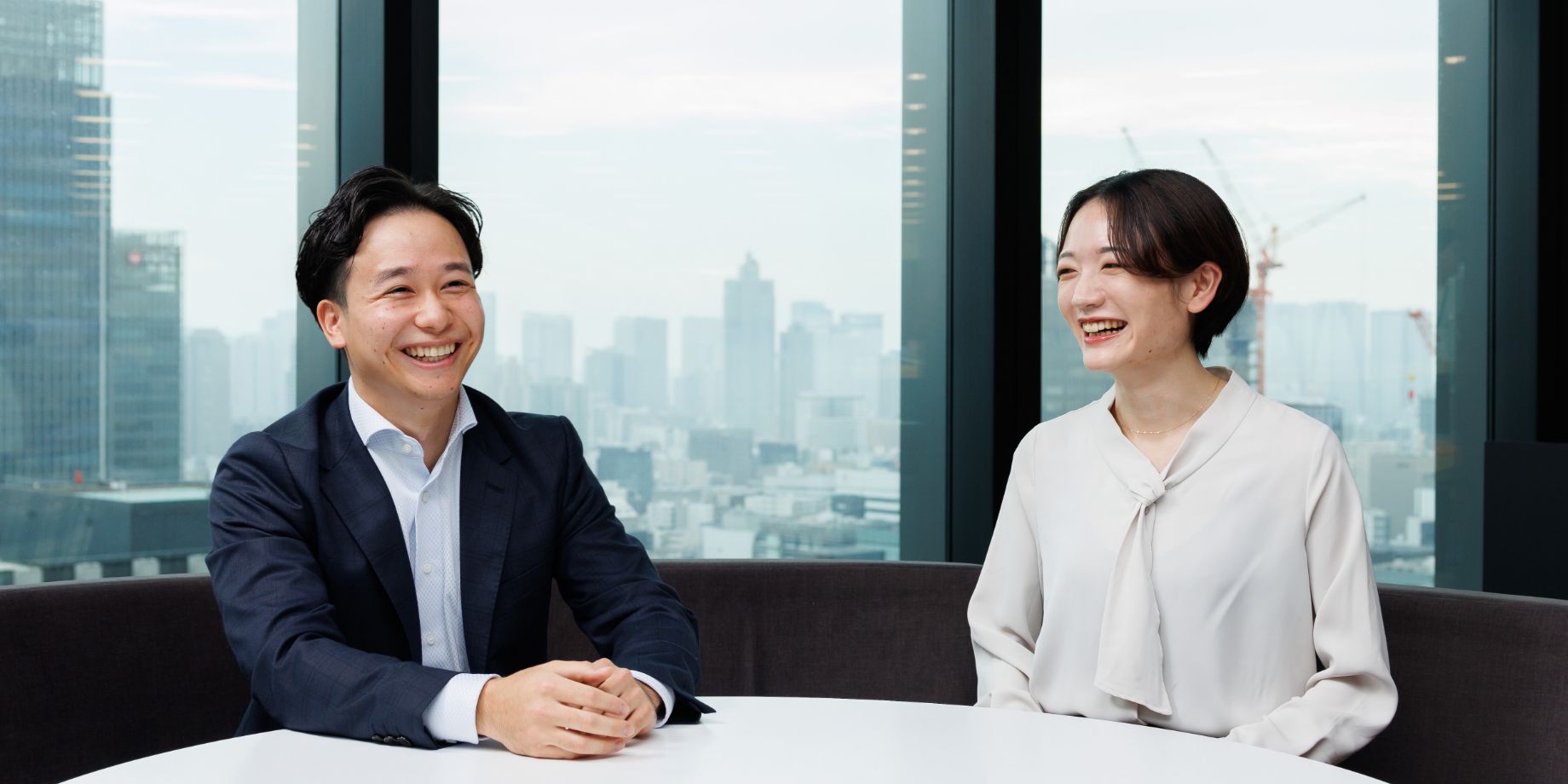

Hiroto Kakizaki
IT Equipment Business Division II, Corporate Business Unit III
Joined the company in 2021. In the IT Equipment Business Division II, he is engaged in proposing financing methods including leasing, managing investment targets, and developing business with partners, mainly in the IT and mobility-related industries. Born in Sapporo, Hokkaido, he returns home every week during the winter to enjoy seasonal sports.

Haruka Matsumoto
Real Estate Finance Division I, Specialty Finance Business Unit II
Joined the company in 2022. Since her first year with the company, she has been concurrently managing Hotel Indigo Karuizawa and TC Hotels & Resorts Karuizawa. Starting this fiscal year, she has been appointed to overseas real estate fund investment projects. She was born in Gunma Prefecture and likes reading and listening to Western music.

Hotel Indigo Karuizawa
https://karuizawa.hotelindigo.com/en/
| Address: | 18-39 Yashikizoe, Nagakura, Karuizawa-machi, Kitasaku-gun, Nagano, Japan |
| Phone: | +81-267-42-1100 |
| Access: | By train: 2.5 km or approximately five minutes by hotel shuttle from Karuizawa Station on the JR Hokuriku Shinkansen or Shinano Railway By bus: Take the Karuizawa-machi circulator bus on the Higashi-minamimawari Line from Karuizawa Station, get off at the Minami-Karuizawa Kosaten bus stop and walk about five minutes By car: 9.5 km or approximately 17 minutes from Usui Karuizawa Exit on the Joshinetsu Expressway toward Minami-karuizawa |
Note: The contents of the article and the position titles are current as of the date posted.
RECOMMEND ARTICLES
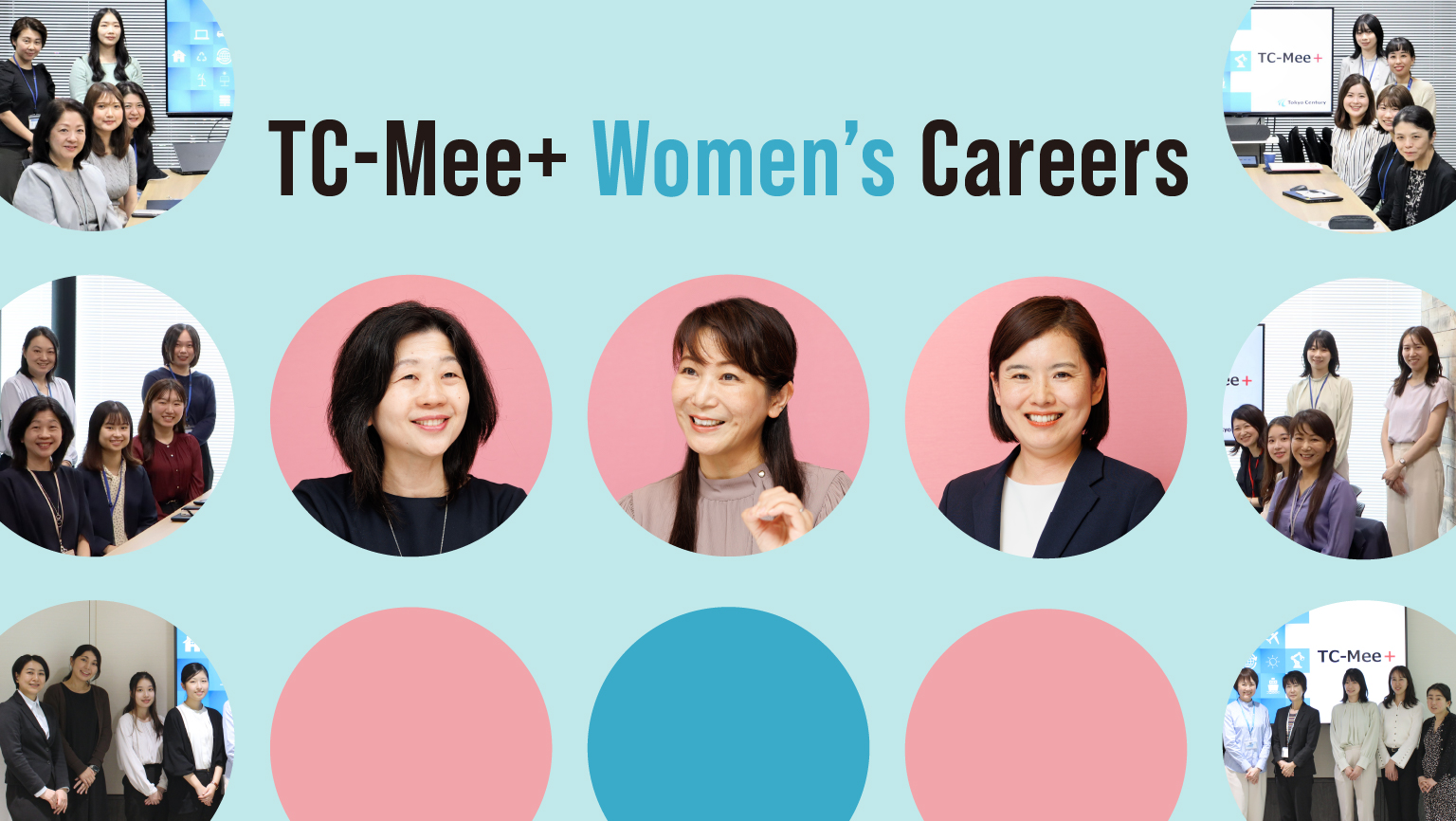
Dec 13, 2024
Since fiscal 2022, T…
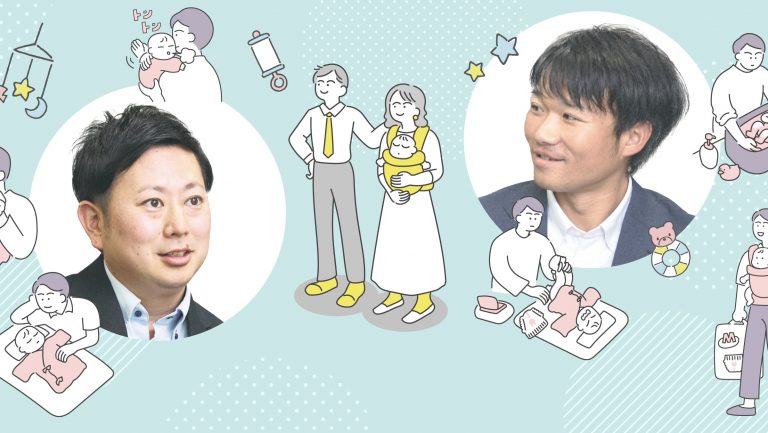
Feb 28, 2024
With the Act on Chil…
